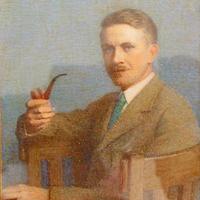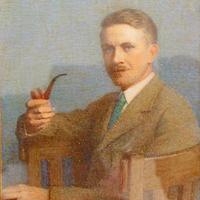The Moore County School Board is set to discuss Monday whether “George,” a children’s novel about a transgender girl, should remain in the libraries of two schools, ending a months-long review into the suitability of the book for students.
Alex Gino, the non-binary author of the book that uses the pronouns they/them, has been following the local controversy surrounding “George”. They said they weren’t surprised a resident filed a lawsuit in December asking for the book to be removed from McDeeds Creek and Union Pines Elementary Schools.
School districts across the United States have filed similar complaints about “George,” which last year topped the American Library Association’s list of most disputed books. The novel is generally challenged for its “LGBTQIA+ content, conflicting with a religious viewpoint, and failing to reflect ‘our community’s values,'” according to the association.
Gino said their book is “at its heart, a traditional middle-grade story” about a transgender fourth-grade student who wants to play Charlotte in her school’s stage production of “Charlotte’s Web.”
“There’s a difference between a book that’s challenged because of what an author chose to do with it and a book that’s challenged because of who the author is,” Gino said in a Zoom interview. “My book is banned because there is a trans character, and it says that my existence is so monstrous, so terrifying, that it is not suitable for children. It is heartbreaking.
The local push to remove “George” was prompted by a complaint from Carthage resident Jim Pedersen, who argued that it was “not the government’s business to introduce children to transgenderism”. He has no children enrolled in either school carrying the book.
Moore County School Board member Phillip Holmes vowed in January to take “George” out of circulation.
“We teach reading, writing and arithmetic,” he told The Pilot at the time. “You can teach ‘be nice to everyone, treat them the same’, this, that and the other, but when you start to dive deep into a person, how they recognize themselves, I’m not d okay with that.”
Gino disagreed, saying positive portrayals of transgender people in books can help others become “more aware and tolerant”. Promoting acceptance, they said, is crucial at a time “when trans people, especially trans women of color, are exposed to violence.”
About 86% of students surveyed in 2019 by national LGBTQ group GLSEN said they had been harassed or assaulted “because of their sexual orientation, gender expression and gender identity.” More than half of those same students did not notify school officials because they doubted an “effective response would occur or feared the situation would escalate once reported,” according to GLSEN.
Carter, an eighth-grade transgender student attending Moore County Schools, said books like “George” are “a source of representation” for students like him.
“I think a lot of people think that if a cisgender or non-LGBTQ kid comes across the book, they might be influenced by the transgender themes in the book, which I don’t think is true,” said Carter, whose mother has asked to be identified by a pseudonym for security reasons. “The book talks about how hard it is to be trans and how hard it is. It doesn’t try to tell people to live alternative lifestyles.
He pointed out that “George” is not required reading for students and should be pulled from school media centers.
“It’s not forced on other kids,” he said. “It’s just a book in the library, and it’s very important to have books for every child in the school. It’s our decision to take the book or not.
His sentiment is echoed by Gino, who also feels that adults stifle the autonomy of young readers when they restrict access to certain books.
“One of the lines I hear is, ‘You can decide what your kid reads, but you can’t decide what my kid reads,'” they said. “But that kid over there has now been denied access, and that kid over there might be a trans kid who is exactly the kid who needs to get that book. No, you don’t decide what your children read. Your children are full human beings who have the right and the merit to know the world. They deserve tools, and your denying them that makes for unprepared adults, and that’s a travesty.
After receiving Pedersen’s complaint, the Moore County School Board appointed an advisory committee to review the book’s suitability for students. The committee, made up of both teachers and parents, decided last month that ‘George’ should stay at both schools.
In its recommendation to keep “George” at McDeeds Creek Elementary School, the committee wrote that the book “sends positive messages about acceptance, diversity and inclusion”. The group’s recommendation for Union Pines High School states that the novel “meets the diverse needs of members of the school community and reflects a relevant perspective on current issues.”
The committee’s recommendations were forwarded to the school board for final review.
“I’m actually not worried about them voting against it,” Gino said. “I believe in the people in this room, and I believe they know the systems through which the books go through to get into the classroom. Those challenges don’t pass most of the time, however, they will keep coming, it It is therefore important to put policies in place so that it does not take up so much time and energy.
Gino urged the school system to establish a “more onerous process” for dealing with disputed books in the future. Getting something like “George” banned from school libraries, they said, “should be as hard as it was for me to get it published.”





